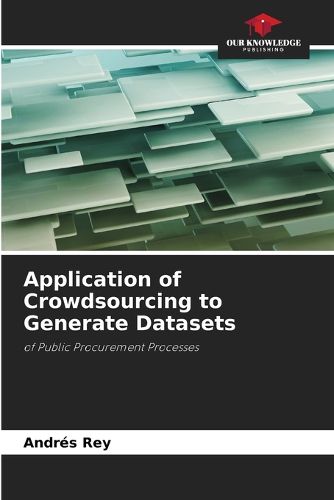Readings Newsletter
Become a Readings Member to make your shopping experience even easier.
Sign in or sign up for free!
You’re not far away from qualifying for FREE standard shipping within Australia
You’ve qualified for FREE standard shipping within Australia
The cart is loading…






This title is printed to order. This book may have been self-published. If so, we cannot guarantee the quality of the content. In the main most books will have gone through the editing process however some may not. We therefore suggest that you be aware of this before ordering this book. If in doubt check either the author or publisher’s details as we are unable to accept any returns unless they are faulty. Please contact us if you have any questions.
The book discusses the application of Crowdsourcing in data collection highlighting its effectiveness in generating data sets. Although there was a lack of a general guide or method for this purpose, the author compiled elements from several studies to propose a proprietary method that can generate accurate data sets, highlighting that human participation introduces some errors that are corrected by an evolutionary algorithm that implements data quality control. To deploy the proposed method, a web application was developed to support it and data from the Electronic Public Procurement System in Colombia (SECOP) was used, which stands out as a valuable source, even more complete than that of some European Union countries. In summary, the book provides answers to how to generate datasets of public procurement processes using Crowdsourcing, although it points out the need to address quality issues in such datasets in future work.
$9.00 standard shipping within Australia
FREE standard shipping within Australia for orders over $100.00
Express & International shipping calculated at checkout
This title is printed to order. This book may have been self-published. If so, we cannot guarantee the quality of the content. In the main most books will have gone through the editing process however some may not. We therefore suggest that you be aware of this before ordering this book. If in doubt check either the author or publisher’s details as we are unable to accept any returns unless they are faulty. Please contact us if you have any questions.
The book discusses the application of Crowdsourcing in data collection highlighting its effectiveness in generating data sets. Although there was a lack of a general guide or method for this purpose, the author compiled elements from several studies to propose a proprietary method that can generate accurate data sets, highlighting that human participation introduces some errors that are corrected by an evolutionary algorithm that implements data quality control. To deploy the proposed method, a web application was developed to support it and data from the Electronic Public Procurement System in Colombia (SECOP) was used, which stands out as a valuable source, even more complete than that of some European Union countries. In summary, the book provides answers to how to generate datasets of public procurement processes using Crowdsourcing, although it points out the need to address quality issues in such datasets in future work.